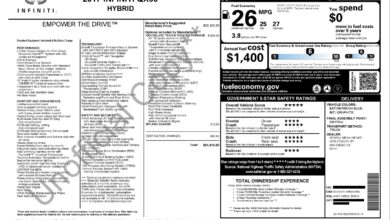Business
The Way Audit Firms in Dubai Account for Warranties Based on IFRS 15

IFRS 15 comes with some good guidance for audit firms in Dubai about warranties. The standard stipulates two warranty types:
Assurance Type Warranties
These warranties guarantee customers that delivered products are exactly as described in the agreement and will function as expected. The warranties do not result in separate performance obligations, and company audit teams account for warranty repairs as per IAS 37.
Service Type Warranties
These warranties offer extra features to the assurance. For instance, providing additional services. These warranties result in an independent performance obligation because they provide extra service to customers. So, company audit specialists account it under IFRS 15.
Before accounting for warranties, audit specialists should determine what type of warranty their company has.
What Warranty Does the Dubai Company Have
The first thing internal auditors should do is see if customers can buy the warranty separately.
If yes, it’s a certain service type warranty, and it must be accounted for as a separate performance obligation.
If not, the auditors should consider if the warranty offers something more, some extra features apart from fixing the existing defects at the time of sale.
Here, audit services for the company must consider several things.
Does The Law Approve the Warranty?
Different countries have laws that require companies to provide a warranty for a given period. If a company warranty is this type, it’s considered an assurance type, hence no performance obligation.
If the warranty is for a more extended period than the laws required, it could be a service-type warranty. And the company should consider several things based on the nature of the product and services.
Keep in mind not all of these factors are determinative. But rather a guide on how companies in Dubai consider it themselves.
An Example: Service versus Assurance Type Warranty
Consider the case of someone who sells cars.
And, let us say that there are standard cars and luxury cars.
The local legislation requires a warranty period of 2 years for standard cars but three years for luxury cars.
As a result, they expect hidden defects to take longer to manifest.
In addition to the law-required warranty period, this one-year warranty would generally constitute a service-type warranty.
It is not considered extra service because it is a luxury car of higher quality. The first hidden defects often appear longer than in a standard vehicle.
It is pretty judgmental to say this, and you should consider it in the context of the product and situation you have.
Example:
How should the company audit specialist account for individual warranties?
A refrigerator from X costs AED 100 and has a warranty duration of 2 years. X must rectify all defects from the date of sale over these two years.
This warranty can be extended for another two years for a fee of AED 20.
In the first two years after purchase, X estimates a discounted price of AED 40 000 in repairs and AED 50 000 in the second two years.
In this case, the first two years of the warranty period are regarded as assurance-type warranties since they can’t be purchased separately – they are guaranteed by law.
In this case, financial audit pros should account for the warranty under IAS 37 rather than separately under IFRS 15.This means you should set aside funds for the estimated cost of repairs over the next two years as a provision for warranty repairs.
Here is the journal entry:
Debit costs for warranty repairs – AED 40 000,
Credit offerings for warranty repairs – AED 40 000.
The actual cost of the repair is accounted for as a reduction in provision by X if the warranty repair happens within the first two years.It is also essential that you unwind the discount since it was calculated at the discounted price.
How about the extended warranty?
Since the customer pays for it separately, it is a separate performance obligation.A client who buys the fridge for AED 100 with an extended warranty will pay AED 120.In X’s accounting, each performance obligation is recorded separately, and revenue is recognized when the performance obligation is fulfilled.
Since the fridge is delivered and the performance obligation is satisfied at the sale, revenue is recognized immediately.Revenue from extended warranties is recognized throughout the extended warranty.
ALSO READ: Rajkotupdates.news : Indian CEOs expect economic growth
As of the date of sale, the journal entry is:
Debit Cash: AED 120
Credit Revenues from the sale of the fridge: AED 100
Credit Contract liability: AED 20
Over these last two years, the revenue from an extended warranty is recognized as:
Debit Contract liability: AED 20
Credit Revenue from the sale of warranties: AED 20
How much will the repairs cost in the extended period?
Because we’re under IFRS 15, not IAS 37, there is no recognition provision.
IFRS 15 requires that warranty repairs be booked as contract costs (costs to fulfill the contract) when they are incurred.
For more information about IFRS 15 in regard to warranties, please visit our website. Also, you can contact us for an in-person meeting.





